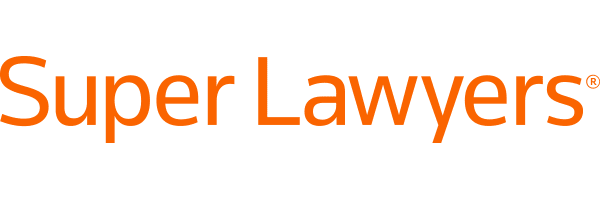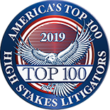Top rated attorney Joe Griffith has a wealth of experience in the legal areas of bankruptcy fraud and white collar criminal law. White collar crime and white collar bankruptcy fraud defense litigation are a major focus of JGLF's practice. Joe Griffith is designated as an AV rated lawyer by the prestigious Martindale-Hubbell® attorney rating company, signifying the highest possible ranking for legal ability and ethics as judged by peers in the legal profession. The firm is dedicated to providing outstanding legal service to each of its clients and will fight to protect them to the fullest extent allowable under the law. Client satisfaction is JGLF's number one goal.
A white collar crime is a serious offense in South Carolina and throughout the United States (“US”). A white collar federal bankruptcy fraud criminal conviction can have life altering consequences. If you are being investigated for, or have been indicted or otherwise charged with, the crime of bankruptcy fraud, you should immediately contact the Joe Griffith Law Firm for a free consultation.
The federal bankruptcy fraud criminal provisions, which are applicable to any proceeding, arrangement or plan under the Bankruptcy Code, Title 11 of the United States Code, are found at 18 U.S.C. §§ 152 to 157. A violation of any of these provisions is generally considered to be a white collar crime. These bankruptcy fraud statutes were promulgated to preserve honesty in the administration of bankruptcy proceedings and to ensure that creditors receive their fair share of the bankrupt’s estate. 18 U.S.C. § 151 provides that “the term ‘debtor’ means a debtor concerning whom a petition has been filed under Title 11.”
18 U.S.C. § 3057(a) requires that a judge, receiver or trustee having reasonable grounds for believing that a violation of federal laws relating to bankruptcy and receiverships has been committed must report all the facts and circumstances to the appropriate United States Attorney Office, which conducts an investigation thereof, and determines whether to prosecute or decline the case. Generally, however, the procedures set forth in 18 U.S.C. § 3057(a) do not provide the defendant any substantive or procedural rights. Dean v. United States, 51 F.2d 481 (9th Cir. 1931); United States v. Filiberti, 353 F.Supp. 252 (D.Conn. 1973); In re Kalina, 202 B.R. 600 (N.D.Ill. 1996).
18 U.S.C. § 152. Concealment of assets; false oaths and claims; bribery. 18 U.S.C. § 152 has nine subsections setting forth separate criminal law violations relating to concealment of assets, false oaths, false claims and bribery. This statute provides as follows:
A person who:
In brief, these nine subsections of 18 U.S.C. § 152 prohibit the following activities:
These nine subsections of 18 U.S.C. § 152 create separate crimes, the violation of which may be indicted separately because each requires proof of a different set of facts. United States v. Gordon , 379 F.2d 788, 790 (2d Cir.), cert. denied, 389 U.S. 927 (1967); United States v. Arge, 418 F.2d 721 (10th Cir. 1969); United States v. Roberts, 783 F.2d 767 (9th Cir. 1985); United States v. Christner, 66 F.3d 922, 928 (8th Cir. 1995).
All of the crimes set forth in subsections of Section 152 require that the criminal act be done "knowingly" and "fraudulently." An inadvertent error does not support a violation of Section 152. United States v. Ellis, 50 F.3d 419, 426 (7th Cir.), cert. denied, 116 S. Ct. 143 (1995); United States v. Smithson, 49 F.3d 138, 142 (5th Cir. 1995) (act is knowingly when done voluntarily and intentionally and not because of mistake or accident).
The term "fraudulently" means that the act was done with the intent to deceive. United States v. Diorio, 451 F.2d 21, 23 (2d Cir. 1971), cert. denied, 405 U.S. 955 (1972). Fraudulent intent may be proven circumstantially. United States v. Goodstein, 883 F.2d 1362, 1370 (7th Cir. 1989), cert. denied, 494 U.S. 1007 (1990). The government does not have to prove that the defendant knew that he was breaking the law. United States v. Zehrbach, 47 F.3d 1252 (en banc) (3d Cir. 1995), cert. denied, 115 S. Ct. 1699 (1995).
The government must show that the defendant was contemplating a bankruptcy or intended to defeat the bankruptcy laws in order to obtain a conviction for transferring property in contemplation of bankruptcy. However, circumstantial evidence of pre-bankruptcy activities such as secret insider deals, less than arm’s length transactions, efforts to generate greater cash flow, and the weak financial condition of a company, can be evidence that the acts were in contemplation of bankruptcy. United States v. Martin, 408 F.2d 949, 954 (7th Cir.), cert. denied, 396 U.S. 824 (1969); United States v. Haymes, 610 F.2d 309 (5th Cir. 1980); United States v. Ayotte, 385 F.2d 988, 991 (6th Cir. 1967), vacated on other grounds sub nom Giordano v. United States, 394 U.S. 310 (1969) (secret inventory removal and failure to pay debts were in contemplation of bankruptcy); United States v. Butler, 704 F. Supp. 1338, 1347 (E.D.Va. 1989), aff'd w/o op., 905 F.2d 1532 (4th Cir.) cert. denied, 498 U.S. 900 (1990) (defendant's attempts to obtain payment from debtor for his legal fees prior to declaration of bankruptcy showed acts in contemplation of bankruptcy); United States v. Willey, 57 F.3d 1374, 1380 (5th Cir.), cert. denied, 116 S. Ct. 675 (1995) (defendant's affidavit in a divorce proceeding that he was considering bankruptcy relief followed by transfer of assets showed acts in contemplation of bankruptcy).
Venue is proper in the district in which the bankruptcy proceeding is located or the district which is the situs of the trustee. United States v. Schireson, 116 F.2d 881, 884 (3d Cir. 1940); United States v. Brimberry, 779 F.2d 1339, 1345 (8th Cir. 1985); United States v. Martin, 408 F.2d 949, 953 (7th Cir.), cert. denied, 396 U.S. 824 (1969), United States v. Gordon, 379 F.2d 788, 791 (2d Cir.), cert. denied, 389 U.S. 927 (1967); United States v. Zimmerman, 158 F.2d 559 (7th Cir. 1946).
18 U.S.C. § 152(1) Elements of the crime:
The criminal law elements of the offense of concealment under 18 U.S.C. § 152(1) that the government must prove are:
United States v. Wagner , 382 F.3d 598 (6th Cir. 2004); United States v. Guiliano, 644 F.2d 85, 87 (2d Cir. 1981); United States v. Beery, 678 F.2d 856 (10th Cir. 1982), cert. denied, 471 U.S. 1066 (1985).
18 U.S.C. § 152(2) Elements of the crime:
The criminal law elements of the offense of a false oath violation under 18 U.S.C. § 152(2) that the government must prove are:
Metheany v. United States , 390 F.2d 559, 561 (9th Cir.), cert. denied, 393 U.S. 824 (1968).
18 U.S.C. § 152(3) Elements of the crime:
The criminal law elements of the offense of a false declaration violation under 18 U.S.C. § 152(3) that the government must prove are:
Devitt, Blackmar & O'Malley, 2 Federal Jury Practice and Instructions, § 24.07 (4th ed. 1990).
18 U.S.C. § 152(4) Elements of the crime:
The criminal law elements of the offense of a false claim violation under 18 U.S.C. § 152(4) that the government must prove are:
United States v. Overmyer , 867 F.2d 937, 949 (6th Cir.), cert. denied, 493 U.S. 813 (1989).
18 U.S.C. § 152(5) Elements of the crime:
The criminal law elements of the offense of a fraudulent receipt of property violation under 18 U.S.C. § 152(5) that the government must prove are:
18 U.S.C. § 152(6) Elements of the crime:
The criminal law elements of the offense of an unlawful bribery or kickback violation under 18 U.S.C. § 152(6) that the government must prove are:
United States v. Weiss , 168 F. Supp. 728 (W.D. Pa. 1958) (bidder agreeing to withdraw the bid in return for money is a violation). Note, however, that public disclosure of an offer to act or to not act, such as settlement or compromise of claims, will generally negate the element of criminal intent.
18 U.S.C. § 152(7) Elements of the crime:
The criminal law elements of the offense of an unlawful transfer or concealment of assets violation under 18 U.S.C. § 152(7) that the government must prove are:
Section 152(7) applies to both pre-petition and post-petition transactions and prohibits both the concealment and transfer of assets as separate crimes. Burchinal v. United States, 342 F.2d 982, 985 (10th Cir.), cert. denied, 382 U.S. 843 (1965).
18 U.S.C. § 152(8) Elements of the crime:
The criminal law elements of the offense of an unlawful concealment, destruction or falsification of records violation under 18 U.S.C. § 152(8) that the government must prove are:
Devitt & Blackmar, 2 Federal Jury Practice and Instructions, §§ 48.14 & 48.15 (1990 Supplement); United States v. McDaniel , 2006 WL 839095 (W.D.Mich.).
18 U.S.C. § 152(9) Element of the crime:
The criminal law elements of the offense of an unlawful withholding of information violation under 18 U.S.C. § 152(9) that the government must prove are:
Devitt & Blackmar, 2 Federal Jury Practice and Instructions, §§ 48.14 & 48.15 (1990 Supplement).
18 U.S.C. § 3284. Statute of Limitations.
Title 18 U.S.C. § 3284, a special statute of limitations which applies to bankruptcy cases involving the concealment of assets, provides as follows:
The concealment of assets of a debtor in a case under Title 11 shall be deemed to be a continuing offense until the debtor shall have been finally discharged or a discharge denied, and the period of limitations shall not begin to run until such final discharge or denial of discharge.
When a debtor either receives a discharge or is denied a discharge by court order, the five-year statute of limitations period pursuant to 18 U.S.C. § 3282 commences upon the date of the discharge or denial of the discharge. However, when a debtor does not receive a discharge or a denial of a discharge, determining the commencement of the statute of limitations becomes difficult in bankruptcy concealment cases.
Because there are no provisions in Title 11 authorizing the grant of a discharge for a bankrupt corporation and an individual debtor’s bankruptcy case can be dismissed without a discharge being either granted or denied, the application of the statute of limitations can be confusing.
Some courts have held that a literal interpretation of 18 U.S.C. § 3284 meant that the statute would never run in the foregoing circumstances since a discharge was neither granted nor denied. At least one court has liberally construed the application of the statute of limitations in favor of the defendant and held that statute of limitations began on the date the individual defendant concealed the company assets.
18 U.S.C. § 153. Embezzlement against Estate.
Title 18 U.S.C. § 153 provides as follows:
This section prohibits the embezzlement of property and the secretion or destruction of any document belonging to the estate of the debtor, and covers only those documents which are property of the bankrupt estate.
The criminal law elements of the offense of a bankruptcy embezzlement violation under 18 U.S.C. § 153 that the government must prove are:
The criminal law elements of the offense of a secretion or destruction of documents violation under 18 U.S.C. § 153 that the government must prove are:
18 U.S.C. § 154. Adverse Interest and Conduct.
Title 18 U.S.C. § 154 provides as follows:
A person who, being a custodian, trustee, marshal, or other officer of the court—
Sub-section (1) prohibits self-dealing by government officials, sub-section (2) prohibits the refusal to provide inspection of the bankruptcy estate’s documents and accounts when ordered by a court to provide such inspection, and sub-section (3) prohibits the refusal to permit the Trustee’s inspection of documents and accounts of the bankruptcy estate. All of the violations must be done knowingly, and, of note, any violation of this statute is an infraction punishable by a fine and removal from office.
18 U.S.C. § 155. Fee agreements in cases under Title 11 and receiverships.
Title 18 U.S.C. § 155 provides as follows:
Whoever, being a party in interest, whether as a debtor, creditor, receiver, trustee or representative of any of them, or attorney for any such party in interest, in any receivership or case under Title 11 in any United States court or under its supervision, knowingly and fraudulently enters into any agreement, express or implied, with another such party in interest or attorney for another such party in interest, for the purpose of fixing the fees or other compensation to be paid to any party in interest or to any attorney for any party in interest for services rendered in connection therewith, from the assets of the estate, shall be fined under this Title or imprisoned not more than one year, or both.
This section prohibits any knowingly fraudulent compensation agreements by or between any of the interested parties to a bankruptcy estate which are to be paid from the estate, to wit, any debtor, creditor, receiver, trustee or their representative or attorney. A violation of this statute is a misdemeanor.
18 U.S.C. § 156. Knowing Disregard of Bankruptcy Laws.
Title 18 U.S.C. § 156 provides as follows:
This section prohibits a bankruptcy petition preparer (as defined) from causing the dismissal of a bankruptcy petition or proceeding in knowing disregard of Title 11 or the Bankruptcy Rules, and makes any such violation a misdemeanor.
18 U.S.C. § 157. Bankruptcy Fraud.
Title 18 U.S.C. § 157 provides as follows:
A person who, having devised or intending to devise a scheme or artifice to defraud and for the purpose of executing or concealing such a scheme or artifice or attempting to do so--
This section prohibits devising or intending to devise a scheme or artifice to defraud and, for purposes of executing or concealing the scheme either (1) filing a bankruptcy petition; (2) filing a document in a bankruptcy proceeding; or (3) making a false statement, claim, or promise (a) in relationship to a bankruptcy proceeding either before or after the filing of the petition; or (b) in relation to a proceeding falsely asserted to be pending under the Bankruptcy Code.
The criminal law elements of an offense under 18 U.S.C. § 157(1) that the government must prove are:
United States v. Wagner , 382 F.3d 598 (6th Cir. 2004); United States v. McDaniel , 2006 WL 839095 (W.D.Mich.); United States v. DeSantis, 237 F.3d 607, 613 (6th Cir. 2001); United States v. McBride, 362 F.3d 360, 373 (6th Cir. 2004).
The criminal law elements of an offense under 18 U.S.C. § 157(2) that the government must prove are:
United States v. Wagner , 382 F.3d 598 (6th Cir. 2004).
The criminal law elements of an offense under 18 U.S.C. § 157(3) that the government must prove are:
United States v. DeSantis , 237 F.3d 607 (6th Cir. 2001).
Sentencing regarding bankruptcy fraud violations is generally governed by the Section 2B1.1 of the United States Sentencing Guidelines, which are advisory pursuant to United States v. Booker, 125 S.Ct. 738 (2005), and the factors set forth in 18 U.S.C. § 3553(a). United States v. Coyle, 154 Fed.Appx. 173, 2005 WL 3005688 (C.A.11 (Ga.)); United States v. Brennan, 395 F.3d 59 (2d Cir. 2005).
18 U.S.C. § 3553 provides as follows:
The Joe Griffith Law Firm is a Charleston, South Carolina (“SC”) law firm that concentrates in white collar criminal litigation and bankruptcy fraud.
JGLF represents those accused of criminal misdemeanors and/or felonies in a variety of state and federal proceedings including, but not limited to, initial appearances, preliminary hearings, bond hearings, trials, sentencing hearings, parole hearings, probation hearings, and appeals. JGLF represents those designated “witnesses,” “subjects” or “targets” of grand jury criminal investigations, and have the experience to know when to assert 5th Amendment rights, make effective “proffer” statements, or demand immunity from government prosecutors. Attorney Joe Griffith is extremely effective in conducting pre-indictment investigations to gather and analyze evidence in order to make factual and legal presentations to prosecutors in an effort to persuade them to issue a declination whereby they agree to not indict a person or company under criminal investigation. We have been successful in having investigations declined pre-indictment. In the event of an indictment or other criminal charge, JGLF stands ready to fight for its client and protect his or her legal rights to the fullest extent of the law.
If you or your company have received a subject letter or target letter naming you as a subject or target of an alleged federal bankruptcy fraud crime, or have been charged in a criminal complaint or an indictment with the white collar crime of federal bankruptcy fraud, contact the Joe Griffith Law Firm immediately to discuss your legal rights.







Copyright © 2024 Joe Griffith Law Firm LLC. | Disclaimer | Privacy Policy | Opt-Out
Joe Griffith Law Firm, LLC (sometimes "JGLF") exclusively practices litigation, led by top rated trial attorney Joseph P. Griffith, Jr., a former federal prosecutor. Located at 946 Johnnie Dodds Boulevard, Mt Pleasant, S.C., Joe Griffith Law Firm, LLC handles cases in South Carolina and, on a select basis, nationwide.
Joseph P. Griffith, Jr. is responsible for this website.”